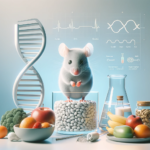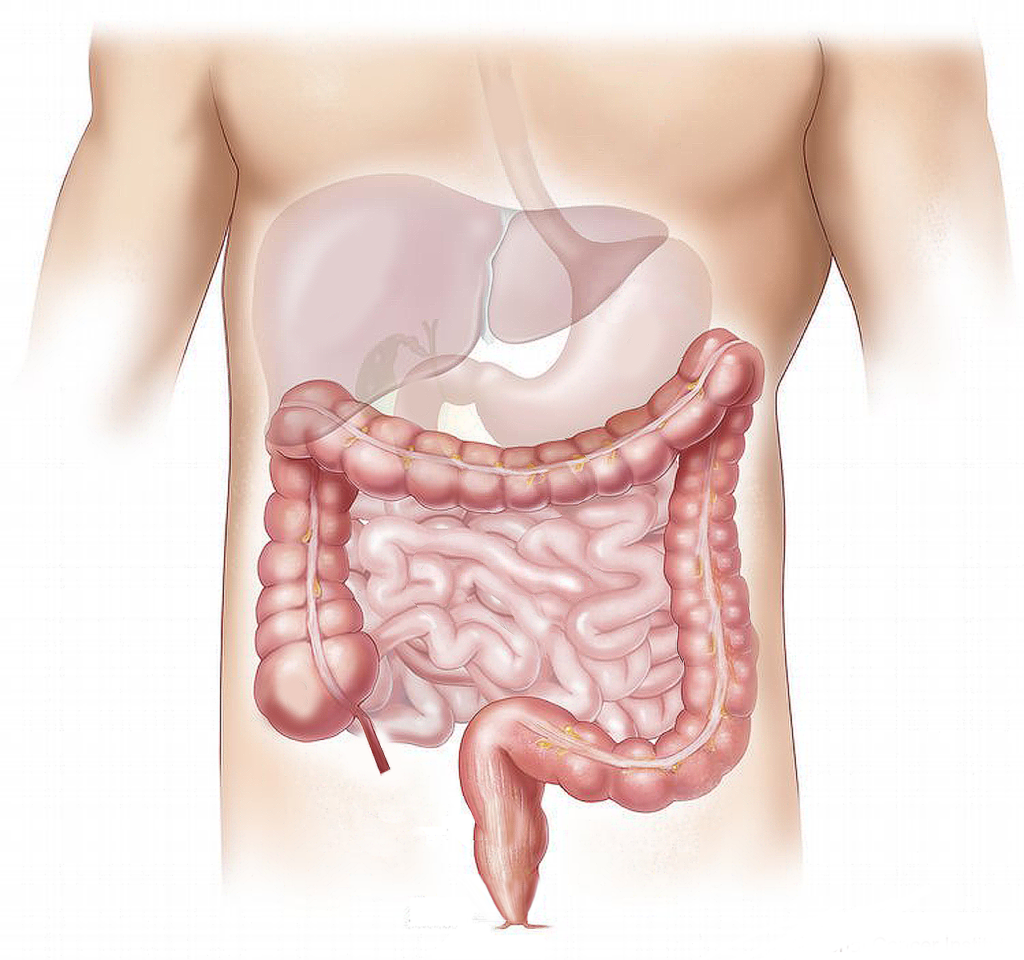Colorectal Cancer: Understanding the Mechanisms of Development and Aspirin’s Role in Prevention
Colorectal cancer is a common and dangerous type of cancer. It is the third most common cancer worldwide, based on its incidence and the number of fatal cases. This cancer develops in the lower parts of the intestine, specifically the colon and rectum. There are multiple risk factors that can increase the chance of developing colon cancer, including age, Western-style diet, obesity, lack of physical activity, alcohol abuse, smoking, and genetic factors (1). Understanding how this cancer develops can help with new treatments and preventative measures.
Mechanisms of Colon Cancer Development
The development of tumors in the colon is complex and involves multiple mechanisms. The colon and intestine are constantly regenerating, with new cells replacing old cells (2). This process is controlled by specialized “seed” cells called intestinal stem cells (2). These cells divide and give rise to new cells in the intestinal lining. However, if there is an imbalance between the number of dividing cells and the number of dying cells, a benign lump or tumor can form. These tumors are called adenomas or polyps (3). Some people have an inherited tendency to develop polyps in their colon, a condition called familial adenomatous polyposis. It is caused by a mutation in a gene called APC. Even if the APC gene is normal, it can be blocked by other mechanisms in the crypt, leading to the formation of polyps. These polyps can become cancerous if not properly addressed, highlighting the importance of understanding the mechanisms of colon cancer development to develop effective treatments and preventative measures.
The Role of Aspirin in Colorectal Cancer Prevention
Taking aspirin over a long time may lower the risk of getting cancer, including colorectal cancer (4). Experts aren’t sure exactly how aspirin works, but one theory is that it helps reduce inflammation by blocking certain enzymes. These enzymes, called COX-1 and COX-2 (5), play a role in causing inflammation. Aspirin affects these enzymes differently, blocking COX-1 and modifying COX-2. But, cancer development is also influenced by other factors besides enzymes. Cancer cells in the colon and rectum have unique changes in their epigenetics.
Investigating the Long-term Effects of Aspirin on Colorectal Cancer and Epigenetic Changes
It’s known that cancer cells have different epigenetic changes than normal cells. Methyl groups in cancer cells can be rearranged, with some areas having less or more than usual (7). These changes can happen before cancer develops, and can help predict future cancer risk. Studies have shown that taking aspirin for more than 2 years can change the methylation associated with aging (7). A research group led by F. Noreen looked at how lifestyle choices affect methylation in the colon and found that aspirin intake was a significant factor. They decided to study how aspirin affects colorectal cancer and methylation in the long-term. They contacted previous study participants and obtained consent from 31 patients. They took samples from two areas of the colon twice at the start of treatment with aspirin and once after 10 years. They formed two groups: one for long-term aspirin users and one for those who never took aspirin. The study found that long-term aspirin users had fewer areas with increased methylation compared to those who never took aspirin. The researchers also found that methylation age in patients taking aspirin for a prolonged period was reliably lower. Aspirin also influenced methylation of genes that block tumor development and inflammation. It’s important to note that aspirin affected other cells in the body, not just colon cells. It also influenced methylation in the upper areas of the colon and not in the lower areas, but aspirin users had a higher risk of polyps in these lower areas. The researchers found that aspirin decreases methylation in the upper areas of the colon, decreases methylation age in both the colon and other tissues of patients who take aspirin, and causes the loss of methylation marks in genes that block tumor development and inflammation. However, the study had a limited number of participants and more research is needed to fully understand the role of aspirin in preventing colorectal cancer.
Literature.
- Conti, S., M. Del Corno, S. Gessani (2020). Revisiting the impact of lifestyle on colorectal cancer risk from gender perspective. Critical Reviews in Oncology/Hematology, V. 145, p. 102834 [online]. Available at: https://www.sciencedirect.com/science/article/abs/pii/S1040842819302185?via%3Dihub. (Accessed January 5, 2021).
- Van der Heijden, M. and L. Vermeulen (2020). Stem cells in homeostasis and cancer of the gut. Molecular Cancer. 18. Article number 66 [online]. Available at: https://molecular-cancer.biomedcentral.com/articles/10.1186/s12943-019-0962-x. (Accessed January 5, 2021)
- Hammoud, S. S., B. R. Cairns, D. A. Jones (2013). Epigenetic regulation of colon cancer and intestinal stem cells. Curr. Opin. Biol., 25(2), p. 177-183
- Qiao, Y. et al. (2018). Associations between aspirin use and the risk of cancers: a meta-analysis of observational studies. BMC cancer, V. 18, Article number 288 [online]. Available at: https://bmccancer.biomedcentral.com/articles/10.1186/s12885-018-4156-5. (Accessed January 5, 2021).
- Alfonso, L. et al. (2014). Molecular targets of aspirin and cancer prevention. British Journal of Cancer, 111, p. 61-67.
- Ehrlich, M. (2002). DNA methylation in cancer: too much, but also too little. Oncogene, 21, p. 5400-5413.
- Noreen, F. et al. (2014). Modulation of Age- and Cancer-Associated DNA Methylation Change in the Healthy Colon by Aspirin and Lifestyle. JNCI: Journal of the National Cancer Institute, 106 (7). p. dju161 [online]. Available at:https://academic.oup.com/jnci/article/106/7/dju161/1010324?login=true. (Accessed January 5. 2021)
Recent Blog Posts
-
 05 Apr 2024Addressing Prostate Cancer Surge: EpiMedTech Global's Response
05 Apr 2024Addressing Prostate Cancer Surge: EpiMedTech Global's Response -
 23 Mar 2024The Transformative Journey of Pregnancy: A Deeper Look into Maternal Biological Aging
23 Mar 2024The Transformative Journey of Pregnancy: A Deeper Look into Maternal Biological Aging -
 11 Mar 2024Unlocking the Connection Between the Gut Microbiome, Muscle Function, and Cognition in the Elderly: Insights from the PROMOTe Trial
11 Mar 2024Unlocking the Connection Between the Gut Microbiome, Muscle Function, and Cognition in the Elderly: Insights from the PROMOTe Trial -
 02 Mar 2024Turning Back Time with Your Fork: The Fasting-Mimicking Diet Unveiled
02 Mar 2024Turning Back Time with Your Fork: The Fasting-Mimicking Diet Unveiled -
 14 Feb 2024Understanding the Secrets of Bat Longevity: A Glimpse into DNA Methylation
14 Feb 2024Understanding the Secrets of Bat Longevity: A Glimpse into DNA Methylation -
 29 Dec 2023Redefining Alzheimer's Management: How Time-Restricted Feeding Aligns Body Clocks and Enhances Brain Health
29 Dec 2023Redefining Alzheimer's Management: How Time-Restricted Feeding Aligns Body Clocks and Enhances Brain Health -
 26 Dec 2023Unlocking the Mystery of Cervical Cancer: The Vital Role of Folate
26 Dec 2023Unlocking the Mystery of Cervical Cancer: The Vital Role of Folate -
 26 Nov 2023Unlocking the Secrets of Age Reversal: How Cutting Edge Research is Paving the Way
26 Nov 2023Unlocking the Secrets of Age Reversal: How Cutting Edge Research is Paving the Way




